Afghan D-Day, finally?
We hope, this time around an Afghan-led and Afghan-owned permanent peace returns to our neighboring country
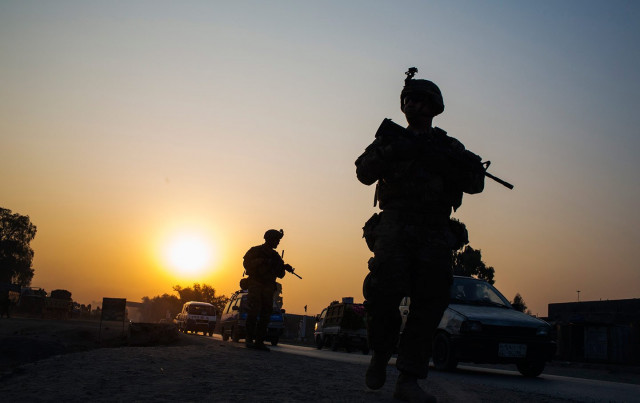
A Reuters file photo
Pakistan would certainly feel a great sense of relief if the first phase of the peace process were to culminate today in Doha, Qatar with the two sides deciding to continue the talks within the agreed parameters to meet in due course of time the mutually-fixed deadlines for establishing permanent peace in Afghanistan and the region.
Pakistan is still suffering from the colossal repercussions in men and material of the first US withdrawal from the scene following the collapse of the Soviet Union when the defeated occupying troops decamped in 1989. The next 40 years saw continued bloodbath in the war-torn Afghanistan while in Pakistan we were caught by surprise by a wave of heightening militancy and terrorism that was stopped short of just a few kilometers from invading Islamabad only in 2008-09. It was a great fight-back from then onwards — Rah-e-Raast, Zarb-e-Azb and finally Radd-ul-Fasaad. We lost thousands of lives and economically suffered in billions at a time when an almost destitute Pakistan was forced to fight two ten-year long, low-intensity wars — one on the side of Afghan Taliban against Northern Alliance supported by India and Iran and the other on the side of freedom fighters in India-occupied Kashmir.
We hope, this time around an Afghan-led and Afghan-owned permanent peace returns to our neighboring country. And its people, instead of getting sucked into another internecine war for the control of Kabul, would take up, in the right earnest, the urgent task of rehabilitation and reconstruction with single-minded purpose.
Pakistan would surely help by cooperating with the Kabul government in replacing the terror zone that had straddled the Durand Line all these 40 years with a free-trade zone for the mutual socio-economic good of the people of the two countries.
One only hopes that the sentiments expressed by Sirajuddin Haqqani in his Feb 20, 2020 New York Times column (What We, the Taliban, Want) are not tactical maneuverings but an outline of a strategy to achieve permanent peace for his people, his country and the neighborhood in general.
Some of Sirajuddin Haqqani’s policy articulations are pregnant with highly positive possibilities: “The long war has exacted a terrible cost from everyone. Everyone is tired of war.
“We are committed to working with other parties in a consultative manner of genuine respect to agree on a new, inclusive political system in which the voice of every Afghan is reflected and where no Afghan feels excluded. We together will find a way to build an Islamic system in which all Afghans have equal rights, where the rights of women that are granted by Islam — from the right to education to the right to work — are protected, and where merit is the basis for equal opportunity.”
Perhaps similar sentiments seem to have persuaded President-elect Ashraf Ghani to postpone his inauguration ceremony. Good omen.
Haqqani seems to have a tentative plan on how to go about establishing permanent peace in his country. He says, “After the United States withdraws its troops, it can play a constructive role in the postwar development and reconstruction of Afghanistan. Afghanistan cannot afford to live in isolation.”
Indeed, we in the neighborhood would surely be greatly relieved if the new all- inclusive government in Kabul were to invoke afresh the Bilateral Security Agreement signed by Ashraf Ghani and the US on September 30, 2014 reaffirming that Afghanistan and the US were committed to strengthening long-term strategic cooperation in areas of mutual interest, including: advancing peace, security, and stability; strengthening state institutions; supporting Afghanistan’s long-term economic and social development; and encouraging regional cooperation.
Published in The Express Tribune, February 29th, 2020.
Like Opinion & Editorial on Facebook, follow @ETOpEd on Twitter to receive all updates on all our daily pieces.

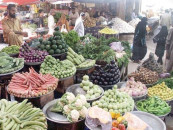
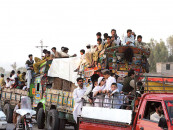
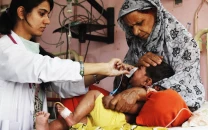

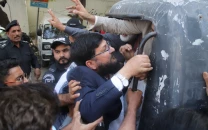













COMMENTS
Comments are moderated and generally will be posted if they are on-topic and not abusive.
For more information, please see our Comments FAQ